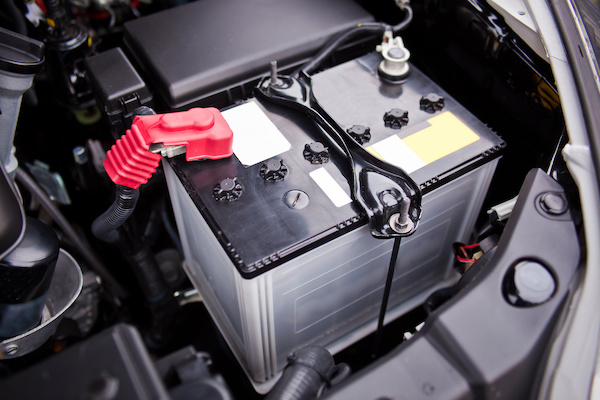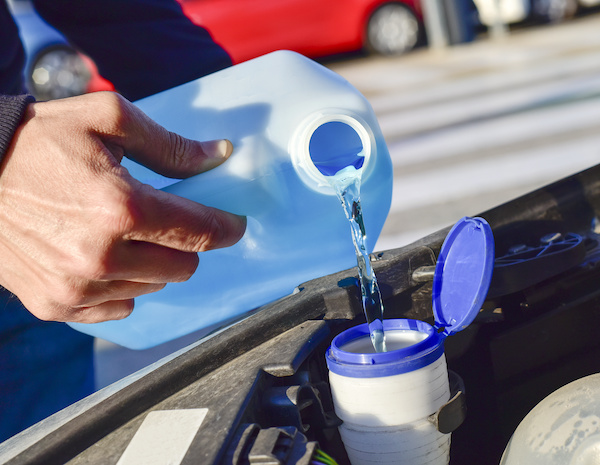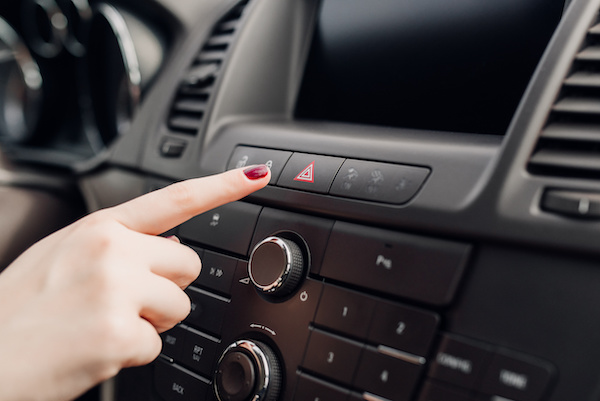Posted on 10/20/2021
.jpeg)
Vehicle transmission issues or failures can happen at any moment for a multitude of reasons. Your options for fixing your car's transmission include repairing, rebuilding, or replacing it. If you are offered these choices, it will help you understand the distinctions between these types of services. When to Consider a Transmission Repair A car's transmission consists of countless parts. Each component of the transmission is essential to its process. A transmission repair will restore only the pieces needed to get your transmission back up and running. The one weakness with a repair is it may not answer an underlying issue. Repairs work best when the problem is a surface level or minor. However, a transmission rebuild may be a more suitable option if the technician has to dig deeper into the transmission to find the issue. When to Consider a Transmission Rebuild A transmission rebuild involves an expert taking apart the entire transmission. During this intricate process, the ... read more
Posted on 9/21/2021

Keeping your battery properly maintained and in top shape should be one of your top priorities as a driver. Without a working battery, your car would simply not start. We've gathered a collection of best tips when it comes to car batteries: Avoid Taking Too Short of Trips A fundamental concept to remember is that your battery recharges when the car is running (by the alternator). And if you're taking many short trips that involve the constant and starting of your engine, your battery won't get a chance to charge. Keep It Clean Periodically examining your battery for a buildup of dust and corrosion can prolong its life and improve its performance. If you notice any corrosive substances on the terminals, you should clean it off immediately. Be sure to wear gloves and consult the owner's manual for further guidance. If you're uncertain of your battery health, be sure to bring your car in for a proper check-up, diagnosis, and repair. Don't Be Cheap While ... read more
Posted on 8/23/2021

The simple answer is: no. Although all wiper fluid serves the same function (to clear your line of vision when driving through wet conditions), there are many different variations on the market with different price points. There is the standard type, de-icing type, and those that withstand bugs, tar, and other sludge. Standard Windshield Wiper Fluid Standard washer fluid has no frills and is sometimes labeled as “summer windshield washer fluid.” The standard wiper fluid is usually the least expensive type and is widely available at gas stations, supermarkets, and convenience stores. Your standard, low-end washer fluid will likely keep your windshield clean when conditions are relatively neutral, but there are other effective options you’ll want to consider if you regularly deal with snow, ice, rain, or mud. De-icing Windshield Washer Fluid Regular windshield washer fluid can freeze in frigid climates — either in the washer tank or when you sp ... read more
Posted on 7/16/2021

Gasoline is becoming a costly expense for many Americans, and it seems like the prices keep hiking up this summer. Whether you are traveling on a road trip or simply heading back into the office, you should do your best to get the most out of your gas mileage. The way you use your car heavily impacts your miles per gallon (MPG). Fortunately, there are plenty of tips and tricks that you can do to boost your fuel economy. Where should you start? Pay Closer Attention to Your Tires There is more to tire maintenance than just your tire pressure. It would be best to be more mindful of your tire tread, wheel alignment, and wheel balance. Specifically, an uneven tread can take a significant hit on your MPG. Avoid Excessive Braking Most people keep their foot on the brake pedal for precautionary measures. However, you should avoid doing it often. Every time you put the slightest pressure on the pedal, you are wasting extra gas. Drive Steadier Studies show tha ... read more
Posted on 6/29/2021

The last place you want to be on a hot, summer day is on the side of a road. Having your vehicle break down on you is one of the most dreadful and stressful situations to be in. If you panic and don't know how to handle the problem, it can worsen the damage to your car or even lead to accidents. The most important thing to do is stay calm and follow these steps to stay safe. Here are three things you should absolutely do when your vehicle breaks down: Switch On Your Emergency/Hazard Lights It is always important to remember to turn on your hazard lights to signal to other people on the road that something is wrong. This form of communication allows other drivers to be aware of your condition and maintain a safe and considerable distance around you. Get Off the Road If you notice that your car is about to break down, you need to veer to the right of the road. This area is also known as the road shoulder. The shoulder is a s ... read more
Posted on 5/26/2021
.jpeg)
The internal combustion engine requires an ignition source to function. Spark plugs provide that ignition sourcing by igniting the air and fuel mix in an engine. This ignition creates an explosion that powers the vehicle and propels it forward. These explosions agitate the pistons that in turn rotate the crankshaft, moving the car forward. Spark plugs create these explosions by creating electrical arcs to uncovered leads, igniting fuel in the engine. Spark plugs are constructed from durable materials like high-nickel alloys and aluminum oxide ceramic. Despite the durability of spark plugs, they do wear down over time. There are extended-life spark plugs that are manufacturer-specific. These spark plugs have life spans up to 100,000 miles. The most common issue of spark plug failure is the widening of the gap between the two leads. This leads to an efficiency reduction and possible misfiring. Spark plugs can also corrode to the point where they do significant damage to the interior of a ... read more
Posted on 4/26/2021
.jpeg)
We all look forward to shedding the wool as winter recedes, or proverbially pulling it from our eyes as the saying goes. As we emerge from under the layers and hazy vision of the colder months, so our cars come out from under the freezing temperatures, snow, sleet, and ice requiring attention and care. Ensure your vehicle's road worthiness and performance, prolong its engine's life, and prevent expensive repairs with these seasonal preparedness tips. Spring to it with these car care tips: Too taut or tired tread? Fluctuating temperatures cause changes in tire pressure which can lead to overinflated tires if left unchecked. Overinflated tires wear prematurely and are less safe. While you're checking and adjusting the pressure of your tires also inspect the tread for damage. Wet weather ahead Wiper blades often crack and wear under the stress of ice, snow, and freezing temperatures. Ensure your blades are primed to handle the heavy seasonal spring rains with cleaning and ... read more
Posted on 3/17/2021
.jpeg)
The fuel in your engine gets converted to heat energy that keeps your vehicle in motion. In fact, this is just how cars get going in the first place. Fuel is the food that feeds your car, but without a cooling system in good, working order, its metabolism will not slow down. A good cooling system is precisely what keeps the engine in check so that it doesn't overheat and cause damage to your car. But on the same token, it also prevents your system from getting too cold, which is when pollutants are most likely to enter your engine. Yet coolant can collect contaminants of its own over time, and that is the very reason to get an entire cooling system or radiator flush. That said, what is a cooling system flush? It's simply when a mechanic flushes out your entire radiator, then replaces it with brand new fluid. Most coolants collect rust, grime, and other particles over time and lead to other issues with your engine. In fact, failure to get a proper radiator flush can not only r ... read more